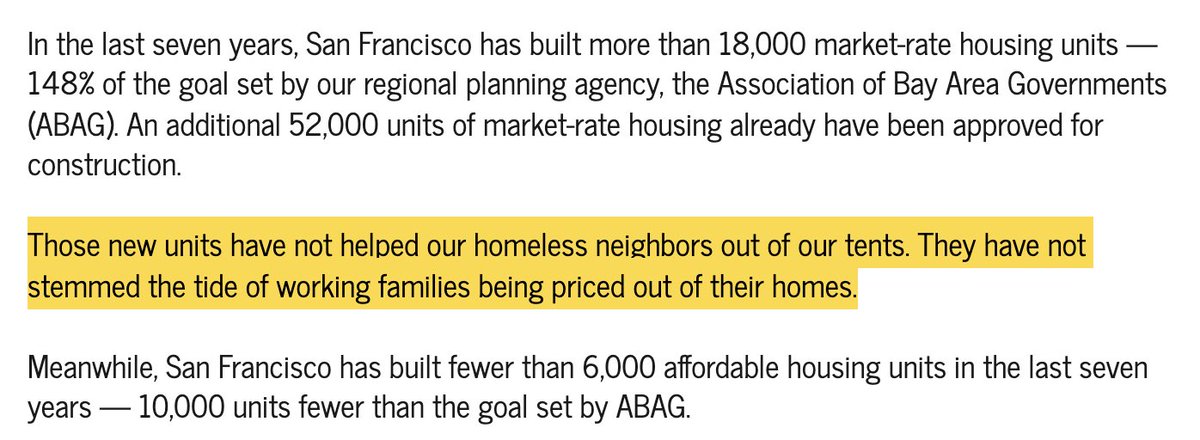
I missed this earlier doubling down by Elberling & Co on 469 Stevenson. It's even more balls-out than the 48hills piece I tweeted about this morning. Not even a mention of "CEQA" or "environment" or "safety," the pretextual grounds for denial. 1/
https://twitter.com/graue/status/1468704506535825409
Instead, it's basically a dare to @California_HCD & @AGRobBonta: Will you really crack down on SF if we spout the right words about affordability & gentrification while blocking the new housing we dislike? 2/
He also trades on one of the original sins of California's RHNA / planning-for-housing framework: the state's failure to give cities "partial credit" for indirect effect of new market rate housing on the regionwide availability of relatively affordable homes. 3/
The point of RHNA is to quantify & accommodate *regional* housing need, & best evidence indicates that every 100 new market-rate units frees up roughly 40-70 units in below-median-income census tracts, incl. 20-40 units in bottom-quintile tracts. 4/
core.ac.uk/download/pdf/2…
core.ac.uk/download/pdf/2…
Yet CA accounts for none of this when measuring cities' progress toward their targets. 5/
Which in turn leads to absurdities like Elberling & Co. blasting SF for "exceeding" its market-rate target, & asserting (w/ implied imprimatur of state) that "excess" market rates do nothing to "stem[] the tide of working families being priced out of their homes." /6 

Elberling is certainly right that "All development is not created equal," but he's deadly wrong that dense market-rate housing in expensive places is bad for the poor and working classes. /end
@ShannanWestCA @CaHousingGuy @Jason_Elliott @AGRobBonta @GVelasquez72 I assume this recent flurry from Eberling / TODCO was meant for you. Not that he gets to write the Board's post-hoc "findings"....
• • •
Missing some Tweet in this thread? You can try to
force a refresh










